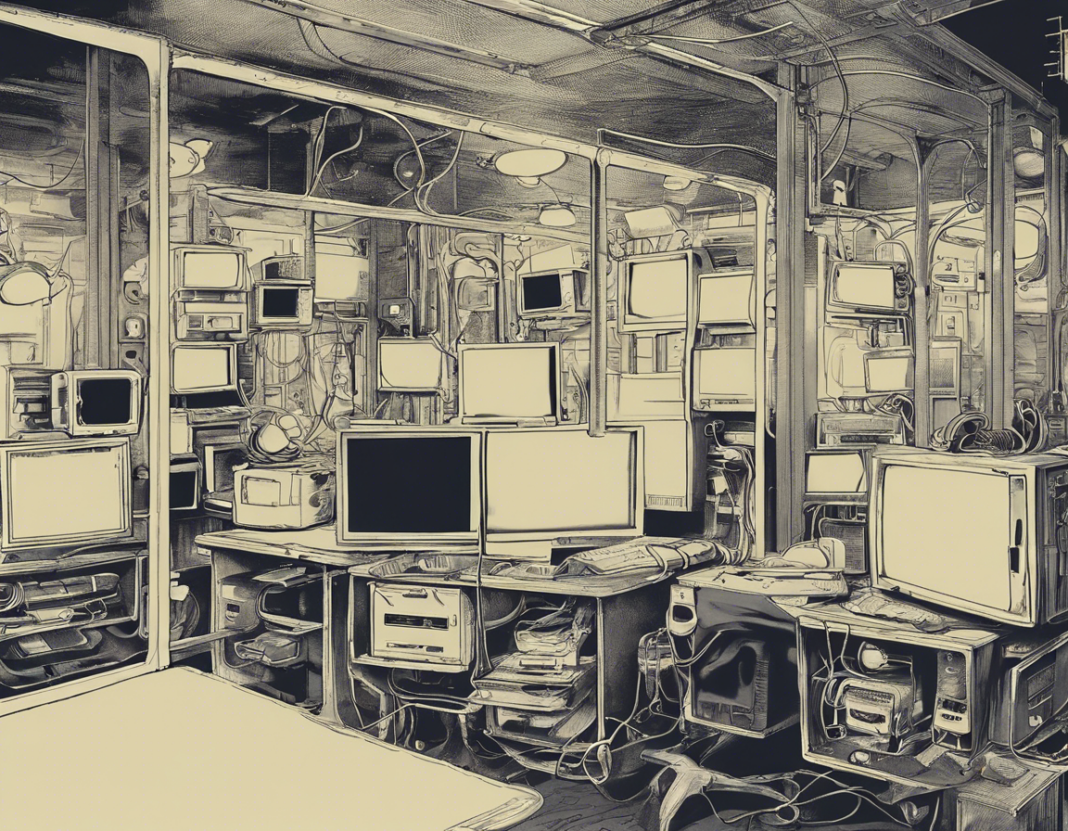Technology has undoubtedly redefined the way we live, work, and interact with the world around us. From the industrial revolution to the digital age, advancements in technology have brought about significant changes in every aspect of society. However, as with any powerful tool, the impact of technology can be viewed from both positive and negative perspectives. In this article, we will explore the various ways in which technology has influenced our lives, discussing its benefits and drawbacks.
The Boons of Technology
1. Increased Connectivity
- Technology has made it easier for people to connect with each other regardless of geographical boundaries.
- Social media platforms and messaging apps enable real-time communication, fostering relationships and enabling collaboration on a global scale.
2. Efficiency and Productivity
- Automation and machine learning have streamlined processes, reducing the time and effort required to perform tasks.
- Businesses can optimize their operations and increase their output with the help of technology.
3. Access to Information
- The internet has revolutionized the way we access information, making knowledge more readily available to anyone with a device and an internet connection.
- Online education platforms have democratized learning, allowing people to acquire new skills and knowledge from the comfort of their homes.
4. Healthcare Advancements
- Technology has led to groundbreaking developments in healthcare, from diagnostics to treatment.
- Telemedicine and health monitoring devices have improved patient care and accessibility to medical services.
5. Environmental Sustainability
- Green technologies and innovations have enabled a shift towards sustainable practices in various industries.
- Renewable energy sources and eco-friendly solutions help reduce carbon footprint and combat climate change.
The Banes of Technology
1. Social Isolation
- Excessive use of technology can lead to social isolation and a decline in face-to-face interactions.
- Dependency on virtual connections may hinder the development of meaningful relationships in the real world.
2. Privacy Concerns
- The digital age has raised concerns about data privacy and cybersecurity.
- Personal information stored online is vulnerable to hacking and misuse, raising ethical and legal dilemmas.
3. Job Displacement
- Automation and AI have replaced many traditional jobs, leading to concerns about unemployment and income inequality.
- Workers must adapt to new skills and industries to remain competitive in an evolving job market.
4. Health Impacts
- Excessive screen time and sedentary behavior associated with technology usage can have negative effects on physical and mental health.
- Blue light exposure, poor posture, and digital addiction are common health concerns in the digital era.
5. Environmental Impact
- The production and disposal of electronic devices contribute to e-waste and environmental pollution.
- Energy consumption from technology usage adds to carbon emissions and resource depletion.
Finding a Balance
While technology offers numerous benefits and conveniences, it is crucial to strike a balance between leveraging its advantages and mitigating its drawbacks. Individuals, organizations, and policymakers play a role in shaping the impact of technology on society. Encouraging digital literacy, promoting ethical use of technology, and implementing regulations to safeguard privacy and sustainability are essential steps towards harnessing technology for the greater good.
Frequently Asked Questions (FAQs)
1. Is technology making us more productive or lazier?
- Technology has the potential to increase productivity through automation and efficiency gains. However, excessive reliance on technology without proper time management can lead to procrastination and decreased motivation, making individuals appear lazier.
2. How can I protect my privacy in the digital age?
- Safeguarding your privacy online involves practices such as using secure passwords, being mindful of the information you share on social media, and utilizing privacy settings on websites and apps. Additionally, staying informed about data breaches and being cautious of phishing attempts can help protect your personal information.
3. What are the environmental benefits of technology?
- Technology plays a crucial role in promoting sustainability through innovations such as renewable energy, energy-efficient devices, and smart solutions for waste management. By embracing green technologies, we can reduce our ecological footprint and mitigate the impacts of climate change.
4. How can we combat the negative health effects of technology?
- To counteract the health impacts of excessive technology use, it is important to practice digital detox, set limits on screen time, maintain good posture while using devices, and prioritize physical activity and face-to-face interactions. Taking regular breaks from electronic devices and engaging in outdoor activities can also help improve overall well-being.
5. What is the future of technology?
- The future of technology holds exciting possibilities in areas such as artificial intelligence, virtual reality, quantum computing, and biotechnology. As technology continues to evolve, it is crucial to consider the ethical, social, and environmental implications of these advancements and strive for a future where technology serves humanity in a sustainable and equitable manner.
